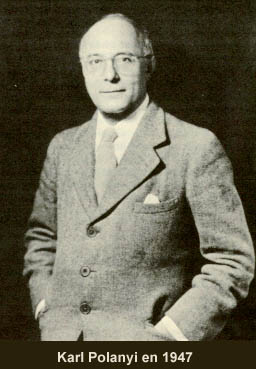Wednesday: This One Day
In this roundup: British fascists rise, smart fridge serves porn, and a Zika overview.
Today’s featured short film by Crystal Moselle is about finding one’s tribe, finding one’s place, crossing the threshold to adulthood in the safety of community. Men may not feel this one as keenly as women will. Many of us are skating alone, running into obstacles set before us simply because we are. With a little support we could skate the world.
Love how Bikini Kill’s Rebel Girl plays us out at the end. That.
Brexit and broken
- Ian Dunt: Tories have become Ukip (Politics.co.uk) — Op-ed looks at UK’s Conservative Party and its aggressive shift toward white nationalism.
- No joke: UK’s Home Secretary sounds like a Nazi (LBC) — Seriously, read the link. Can’t tell Amber Rudd’s speech from Hitler’s Mein Kampf.
- The Daily Mail as Tories’ key influencer (OpenDemocracy) — Anthony Barnett looks at the Mail’s succession to Murdoch’s right-wing propaganda mill. The Mail was one of the two largest traditional media influences on right-wing politicians and Brexit voters (the other being NewsCorp’s The Sun); an American parallel would be the shift in media influence on public opinion as Fox News gave way to a more rightest, Trump-friendly CNN. We don’t trust CNN any more than we do Fox, and the UK shouldn’t trust the Mail any more than it should trust The Sun.
- Theresa May’s Tory Conference speech: fascism wearing a progressive mask (VICE) — May isn’t well known by either UK or US public; her speech this week to her own party gave us a better look at the politician, and she’s not at all pretty. May uses progressive language to make her case, but what she’s really pushing is outright fascism.
- Unwinding a country rich in diversity (OpenDemocracy) — University of Birmingham lecturer and Oxford University research associate Nando Sigona looks at the United Kingdom as an EU citizen. How does a small but densely populated country — land mass the size of Michigan with a population equal to California and Texas combined — move away from the diversity which has made it rich for millennia? Imagine one of those U.S. states (MI/CA/TX) suddenly telling anyone not ‘native’ to that state to leave; what would it do to that state, let alone the people who must leave? It’s not tenable.
- 80th anniversary of East London’s Battle of Cable Street (Guardian) — The British have apparently forgotten their history and are now condemned to repeat it. Who is this generation’s Oswald Mosely: Boris Johnson, Nigel Farage, Michael Gove, Theresa May? With attacks on immigrants increasing, the new blackshirts already make their presence known; they only lack a Mosely.
Still skeptical about Tories’ aggression? Just look at this tweet from Tim Colburne, former deputy chief of staff for LibDem Party’s Nick Clegg. This is not the work of a party working for business interests. We are watching a new Nazism rapidly engulfing the United Kingdom. I doubt it will remain united much longer at this pace.
Keep in mind some of the foreign workers and children the Tories (and Ukip) want identified are U.S. citizens.
Elsewhat, elsewhere
- Poland’s right-wing backs off after Black Monday protests (France 24) — Black Monday protests put a crimp in oppression of women by Poland’s right-wing, though the battle is not over. Also surprised to see Opus Dei mentioned as a key influence behind the push for ban on all abortions.
- Former president Uribe derides failed peace agreement as weak (AFP) — Uribe’s still going off about the agreement’s light punitive action against FARC rebels as well as the agreement’s offer of seats in Congress.
- Three police attacked by terror suspect in Brussels (BBC) — Two were stabbed and one smashed in the face by a Belgian national known to have terror contacts.
- Overview of the war on Yemen (Euronews) — Brief history of the conflict which has now led to starvation of Yemeni children. Most of the world has forgotten Yemen’s crisis.
Cybernia, ho!
- Ireland not happy about the Yahoo email scandal (ITNews-AU) — Ireland wants to know if Yahoo’s scanning emails on behalf of U.S. government compromises Irish citizens’ privacy. Germany’s Fabio de Masi, a member of the European Parliament, has also asked for more details. Yahoo’s scanning could put the brakes on a US-EU data sharing agreement.
- Alleged terror plotter charged, had operating system in cufflink (Guardian) — Located in Cardiff, Wales, the accused also possessed a book on missile guidance and control; he was responsible for a blog with information about Isis and cyber-security guidance.
- Smart refrigerator – now with Pornhub (The Register) — Didn’t manufacturers clue in about so-called smart refrigerators a couple years ago after they were hacked? Clearly not if it’s still possible to hijack displays on Internet of Things devices for porn.
Longread: Overview on Zika
This is a decent meta piece in Omni magazine. Article also points out simple preventive interventions to reduce Zika infections: air conditioning and window screens. Also suggests implementing these in Africa where other arbovirus diseases are endemic, like yellow fever, dengue, chikunguya as well as Zika — except AC will create a greater demand for electricity as well as manufacturing pressure for screens. Also doesn’t really deal with the fact more people are outside during daylight hours in warmer climates, and those who work outdoors (like farmers) have no choice. More comprehensive research on arboviruses is needed and work toward vaccines is probably cheaper, faster, and less taxing to the environment than scaling up electricity and manufacturing. Worth a read if flawed.
Phew. That’s enough for today. Thankfully it’s downhill from here. Catch you later!


